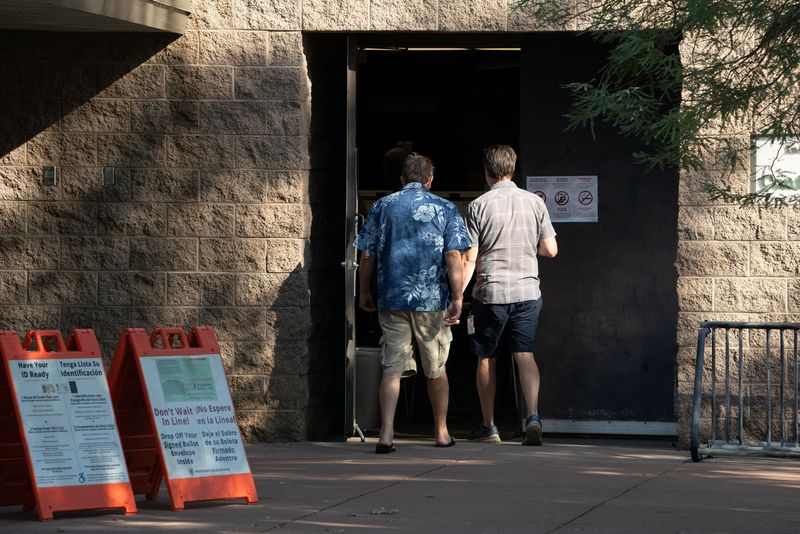In a significant legal development from Arizona, a judge has ordered the state’s Secretary of State, Adrian Fontes, to release a list of registered voters who may not have fulfilled the proof of citizenship requirement due to a computer glitch. This glitch resulted in approximately 218,000 individuals being registered without providing the necessary documentation, which is mandated by state law for voting eligibility. The lawsuit was brought forth by a conservative organization, America First Legal, after Fontes’s office denied a public records request for the names. Concerns were raised about potential threats or harassment against those individuals if their names were disclosed, highlighting the sensitive nature of this situation.
The release of this information is particularly crucial in the context of the upcoming U.S. elections, where Arizona is identified as one of seven key battleground states. Polls indicate that the state is witnessing a tight race between Democratic Vice President Kamala Harris and Republican former President Donald Trump. The stakes are high, as Arizona’s electoral outcomes can significantly influence the overall results of the elections. Arizona’s voting laws are strict, making it illegal for noncitizens to vote, and state and independent investigations have found few instances of noncitizen voting. Despite this, Trump and his supporters have pushed a narrative suggesting that unauthorized voting is widespread, thereby amplifying the controversy surrounding voter registration and citizenship verification.
Judge Scott Blaney of Maricopa County Superior Court emphasized that the information requested by the plaintiff qualifies as a public record, entitling it to prompt disclosure under Arizona’s public records law. This ruling reinforces the principle of transparency in governmental processes, especially regarding the administration of elections. In response to the court’s decision, Fontes’s office has indicated that they are reviewing potential legal options, underscoring a contentious backdrop to the situation as they navigate the implications of the ruling while preparing for an impending election.
This legal battle over voter registration highlights broader national discussions about election integrity, particularly in states like Arizona that have been at the forefront of these debates. Proponents of strict voter ID laws argue that such measures are necessary to prevent fraud and ensure that only eligible voters participate in elections. Opponents, however, warn that these laws can disenfranchise eligible voters, especially minorities and low-income individuals who may face challenges in proving their citizenship. This case exemplifies the tension between these competing narratives and interests, illustrating the challenges faced by state officials in administering fair and transparent elections amid partisan disputes.
The implications of this ruling stretch beyond Arizona, potentially influencing similar cases and discussions in other states, especially those with contentious electoral environments. With the upcoming elections, the spotlight will inevitably be on how states manage voter registration, verification procedures, and ensure that the electoral process remains both secure and accessible. As the legal and political implications of this case unfold, it may serve as a pivotal moment in shaping future election laws and public perceptions of voting integrity in the United States.
In conclusion, the Arizona case encapsulates the ongoing national debate surrounding voter registration, proof of citizenship, and election integrity. With the backdrop of a high-stakes election and the potential for legal ramifications on both sides, the situation exemplifies how technological glitches can lead to significant political and legal ramifications. As the Arizona Secretary of State’s office prepares to comply with the ruling amidst concern for the affected individuals, the outcome of this case may have far-reaching effects on Arizona’s electoral landscape and serve as a litmus test for similar issues across the nation.

